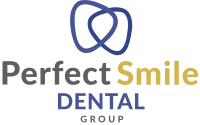Key Takeaways: Restorative dentistry restores both function and appearance, allowing patients to maintain healthy, confident smiles for improved overall well-being. Procedures such as dental fillings, crowns, and implants prevent further damage, preserve natural teeth, and eliminate the need for more invasive treatments. Dental bridges replace missing teeth and prevent shifting, while root canal treatments save …
Key Takeaways:
- Restorative dentistry restores both function and appearance, allowing patients to maintain healthy, confident smiles for improved overall well-being.
- Procedures such as dental fillings, crowns, and implants prevent further damage, preserve natural teeth, and eliminate the need for more invasive treatments.
- Dental bridges replace missing teeth and prevent shifting, while root canal treatments save severely infected teeth, helping patients avoid extractions.
- Regular dental check-ups and restorative procedures are essential for preventing systemic health issues linked to poor oral health.
Maintaining good oral health is essential for overall well-being. Restorative dentistry plays a vital role in achieving this goal. A healthy smile is not just about aesthetics; it’s about ensuring your teeth function properly, allowing you to chew, speak, and enjoy life without discomfort.
Unfortunately, many people experience issues such as decay, missing teeth, or damaged teeth, which can significantly affect the function of their teeth and overall oral health. Restorative dentistry includes a range of procedures that replace missing teeth, repair damaged ones, and restore natural tooth structure.
In this blog, we will explore the different types of restorative dentistry procedures, discuss their benefits, and highlight why maintaining your oral health is essential for your overall health.
Common Restorative Dentistry Procedures
You may have heard of many of the restorative dentistry procedures, but we’ll give you a quick rundown of each. Perfect Smile Dental Group works hard to remove some of the fear and pain you may be associating with these procedures:
- Fillings
- Crowns
- Bridge
- Implants
- Root Canals
Dental Fillings
Dental fillings are among the most common restorative procedures used to treat cavities caused by tooth decay. When a cavity forms, the decayed portion of the tooth is removed, and the space is filled with a tooth-colored composite resin material.
This procedure not only stops the decay from spreading but also restores the tooth’s structure, allowing it to function normally. Dental fillings are essential in preventing further damage to your natural teeth and avoiding more invasive procedures in the future.
Dental Crowns
A dental crown is a cap placed over a damaged or decayed tooth to restore its shape, size, strength, and appearance.
Crowns are often used when a tooth has a large filling, is cracked, or has undergone a root canal. The crown covers the entire visible part of the tooth, providing protection and restoring its function.
Crowns can be made from various materials, including porcelain, ceramic, or metal, but we recommend Zirconia dental crowns for posterior teeth and eMax crowns for restoring anterior teeth. Dental crowns are crucial in preserving the natural tooth and preventing the need for extraction.
Dental Bridges
Dental bridges are used to replace one or more missing teeth by literally bridging the gap left by the missing tooth or teeth.
A bridge consists of artificial teeth anchored to neighboring natural teeth, known as abutments. These teeth, or pontics, can be made from full metal (base metal or gold), porcelain, or zirconia.
Dental bridges help maintain the alignment of your natural teeth, restore your ability to chew and speak correctly, and prevent the surrounding teeth from shifting out of place. They are a reliable option for restoring your teeth’s function and improving your smile.
Dental Implants
Dental implants are one of the most advanced dental restoration procedures available. They involve placing a titanium post into the jawbone, which acts as a replacement for the root of a missing tooth. An artificial tooth, such as a crown or implant-supported dentures, is then attached to the post.
Dental implants are highly durable and provide a long-term solution for replacing missing teeth. They help preserve the jawbone, prevent the surrounding teeth from shifting, and restore the function of your teeth, allowing you to eat, speak, and smile with confidence.
Root Canal Treatment
A root canal is a restorative procedure used to treat a severely infected or damaged tooth.
During the procedure, the infected pulp inside the tooth is removed, and the inside of the tooth is cleaned and sealed. A dental crown is usually placed over the tooth to protect it and restore its function.
Root canal treatment is essential for saving a natural tooth that would otherwise need to be extracted, helping to preserve your natural teeth and maintain your oral health.

The Importance of Oral Health for Overall Health
Poor oral health can have serious consequences for your overall health. Oral infections, such as gum disease, can lead to inflammation and have been linked to various systemic conditions, including:
- Diabetes
- Heart disease
- Respiratory infections
Additionally, tooth decay and missing teeth can affect your ability to eat a balanced diet, leading to nutritional deficiencies. Maintaining good oral health through regular dental check-ups and restorative dentistry procedures can help prevent these issues and improve your overall quality of life.
Frequently Asked Questions About Restorative Dentistry Procedures
What is restorative dentistry?
Restorative dentistry encompasses procedures that repair or replace damaged or missing teeth to restore the function and appearance of your smile.
Are dental fillings noticeable?
Modern dental fillings are made from tooth-colored composite resin, which blends seamlessly with your natural teeth, making them virtually invisible.
How long do dental implants last?
Dental implants are designed to be a long-term solution, often lasting a lifetime with proper care and maintenance.
Is a root canal painful?
Root canal procedures are performed under anesthesia, so you shouldn’t feel pain during the treatment. Any discomfort afterward can be managed with over-the-counter pain relievers.
Can I eat normally with a dental bridge?
Yes, dental bridges restore your ability to chew and eat normally, just like with natural teeth.
Achieve a Healthier Smile With Restorative Dentistry
If you’re experiencing issues with your teeth or want to improve your smile, the team at Perfect Smile Dental Group is here to help. Our restorative dentistry procedures can restore the function and beauty of your teeth, ensuring that you maintain good oral health for years to come.
Contact us today to schedule a consultation and discover how we can help you achieve the smile you’ve always wanted. Your journey to a healthier, more confident smile starts here!



